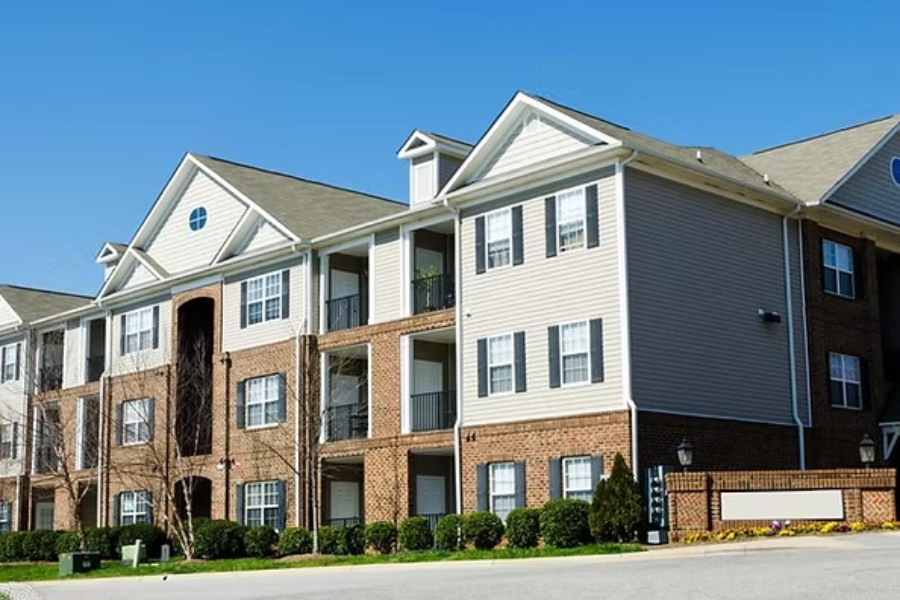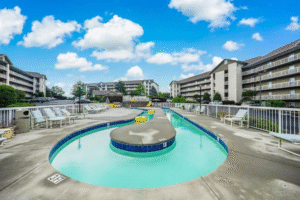A Fresh Start: Finding Second-Chance Apartments and Rebuilding Your Rental History
For many renters, securing an apartment can be a challenging process, especially if they have a history of evictions, poor credit, or past rental issues. Fortunately, second-chance apartments provide an opportunity for individuals to rebuild their rental history and secure stable housing. These apartments cater to tenants who may have been denied elsewhere due to financial setbacks, legal issues, or other challenges.
If you’ve struggled to find housing due to past difficulties, this guide will help you understand what second-chance apartments are, how to find them, and what steps you can take to improve your chances of approval.
What Are Second-Chance Apartments?
Second-chance apartments are rental units specifically designed for individuals who have a less-than-perfect rental or financial history. Unlike traditional apartment complexes that conduct strict background checks and reject applicants based on credit scores or past evictions, second-chance housing providers are more lenient and willing to work with tenants who need another opportunity.
These apartments are often owned by landlords or property management companies that believe in giving people a fresh start. They may still have application requirements, but they focus more on a tenant’s ability to pay rent moving forward rather than their past mistakes.
Who Qualifies for Second-Chance Apartments?
Second-chance apartments cater to various individuals facing rental challenges. You may qualify if you have:
- A low credit score or past bankruptcy – Many traditional landlords reject applicants with poor credit history, but second-chance housing providers often focus more on your current financial situation.
- A history of evictions – If you’ve been evicted before, it can be tough to find a new place. Second-chance apartments offer an opportunity to start fresh.
- Criminal history – Some complexes are willing to rent to individuals with minor or older criminal records.
- Job instability or past income gaps – If you’ve had trouble maintaining steady employment, a second-chance apartment may be more understanding of your situation.
- Rental debt – If you owe money to a previous landlord, you might still be able to secure a second-chance apartment, especially if you have a plan to resolve the debt.
How to Find Second-Chance Apartments
Finding second-chance housing requires a strategic approach, as these apartments are not always widely advertised. Here are a few ways to find them:
1. Search Online Listings
Many apartment search websites have filters that allow you to look for rentals that accept tenants with low credit or past evictions. Try searching with keywords like “second-chance apartments” or “no credit check apartments.”
2. Work with a Rental Locator Service
There are rental agencies and specialists who focus on finding housing for people with rental challenges. These professionals have established relationships with landlords and can connect you with apartments that fit your situation.
3. Contact Individual Landlords
Privately owned rental properties are often more flexible than large apartment complexes. Reach out to landlords directly and explain your circumstances. Some may be willing to work with you, especially if you can show stable income and good references.
4. Check Local Community Resources
Nonprofit organizations, churches, and community groups often have housing assistance programs. They can connect you with second-chance apartments or help you navigate the rental process.
5. Network and Ask for Referrals
If you know someone who has successfully rented an apartment after facing similar challenges, ask them for recommendations. Property managers are more likely to consider tenants referred by trusted sources.
How to Increase Your Possibility of Being Accepted
While second-chance apartments are more lenient, they still have requirements. Here’s how you can increase your chances of approval:
1. Be Honest About Your Situation
Landlords appreciate transparency. If you have a past eviction, legal issue, or bad credit, be upfront about it. Explain what happened and what steps you’ve taken to improve your situation.
2. Show Proof of Income
One of the most critical factors landlords consider is whether you can afford rent. Provide recent pay stubs, bank statements, or a letter from your employer to prove stable income.
3. Offer a Higher Security Deposit
If possible, offer to pay a higher security deposit. This reassures landlords that you’re financially responsible and serious about securing the apartment.
4. Get a Co-Signer or Guarantor
If you have a trusted family member or friend with good credit, they can co-sign your lease. This gives landlords added security in case of missed rent payments.
5. Provide Strong References
Even if you’ve had rental issues, positive references from employers, previous landlords, or community members can help. A recommendation letter from a boss or mentor can strengthen your application.
6. Consider Short-Term Leases
Some second-chance apartments offer month-to-month or short-term leases to allow tenants to prove their reliability. This could be a good way to rebuild trust before committing to a long-term lease.
The Benefits of Renting a Second-Chance Apartment
Choosing a second-chance apartment comes with several advantages:
- A Fresh Start – These apartments allow renters to move forward without being judged solely on past mistakes.
- Flexible Requirements – Unlike traditional rentals, second-chance apartments focus more on your future potential rather than past setbacks.
- Opportunity to Rebuild Credit and Rental History – Successfully paying rent on time can help improve your credit score and rental reputation.
- Stable Housing for You and Your Family – Finding a home provides stability, which is essential for work, education, and overall well-being.
Challenges and Things to Consider
While second-chance apartments provide opportunities, there are some challenges to keep in mind:
- Higher Rent or Fees – Some second-chance apartments charge higher rent or extra fees due to the increased risk they take on.
- Limited Availability – Not all cities have many second-chance apartments, making them harder to find in certain areas.
- Stricter Lease Terms – Some landlords require tenants to follow strict rules, such as shorter lease terms or higher deposits.
To navigate these challenges, research thoroughly and plan your budget accordingly.
How to Maintain a Good Rental Record Moving Forward
Once you secure a second-chance apartment, it’s essential to make the most of the opportunity. Here’s how to maintain a good rental record:
- Pay Rent on Time – Set reminders or use automatic payments to ensure rent is always paid on time.
- Communicate with Your Landlord – If financial difficulties arise, inform your landlord in advance and discuss potential solutions.
- Keep the Apartment in Good Condition – Take care of the unit to avoid damage fees and maintain a good relationship with your landlord.
- Follow Lease Terms – Abiding by all lease rules can help you secure positive references in the future.
- Work on Credit Repair – Paying bills on time, reducing debt, and checking your credit report regularly can help improve your financial standing.
Final Thoughts
Finding a second-chance apartment is an excellent way to secure housing despite past challenges. With the right approach, you can overcome rental obstacles and work toward a stable and positive future. By being honest, prepared, and financially responsible, you can make the most of this opportunity and rebuild your rental history.
Everyone deserves a second chance, and with the right mindset and effort, you can turn your housing situation around for the better.
Unlock premium guest posting opportunities to boost your brand at GuestDraz.com.














Post Comment